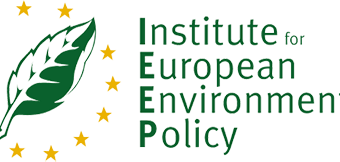
There are many ways to frame the environmental transformation of European agriculture that is needed to achieve biodiversity, climate, farm-to-fork and related goals by 2030 and beyond. In other sectors, such as energy supply and transport, the term “just transition” is the term most often used. The term emphasizes the importance of addressing the social and economic aspects of fundamental change fairly. In EU agriculture and land use, however, the term has yet to enter the mainstream. It may even have contributed to a reluctance to change in this pivotal sector, particularly if farmers feel that fairness to them has not been given the recognition it deserves.
Now is the time, however, to apply the term to agriculture, recognize the major changes needed in the sector, and positively plan an ambitious and just transition agenda. The transition marked by the EU Green Deal requires significant technical, structural and behavioral change in agricultural production, distribution and consumption. Impacts on rural land use and necessary adjustments in the wider food system should be included in the table. Delaying the transition delays and can potentially amplify long-term costs.
However, in many cases, a just transition for agriculture will not involve phasing out production and switching to an entirely new product, such as coal- or gasoline-powered cars. The transition also encompasses the adoption of environmentally sustainable forms of food production, which may involve multiple adjustments to agricultural management, some quite drastic. European agriculture should have a healthy future.
Agriculture also has, unlike other sectors, an important EU fund: the Common Agricultural Policy (CAP). Decisions on what the next CAP will fund have reached a critical stage, with the European Commission's rigorous assessment of member states' plans for 2023 getting underway. Although not designed explicitly as a strategy for a just transition, the new CAP is of central importance, covering most of the period up to 2030. It contains a range of policy tools and financial allocations that could be used to facilitate transition and equity. These include aid for investment in agricultural holdings, new ecological schemes to encourage the adoption of more environmentally friendly land management and the ability to target aid to particularly difficult areas and farms. The Commission has the opportunity to help raise the ambition of Member States with regard to the transition and the new political objectives and to identify unnecessary proposals that should be abandoned. The signs that some Member States, such as Germany, are reviewing what to include in their plans are encouraging. There is now a moment of urgency as governments need to ensure their plans capture the transition rather than stick to the status quo.
To contribute to this critical and complex debate, a new IEEP report released on January 18 presents:
- the relevance of just transition for agriculture and land use;
- some key questions that arise in its application to the complex network of European farms;
- the challenge of identifying winners and losers;
- and a first list of political elements to be included in a targeted EU plan.
These policies include increased engagement with the farming community, investment in skills and capacity building, better use of CAP payments, additional targeted support and greater equity in the food chain from farmers to consumers .
Trying to map forthcoming changes more explicitly could help identify possible effects on farmers and farm workers, as well as on the environment and food production. There will likely be winners and losers as GHG and other polluting emissions are reduced, some forms of agriculture become much less intensive, more land is devoted to enrichment habitat and carbon sequestration and that more efficient use of resources will become essential in agriculture. The pursuit of healthier diets can reduce the demand for livestock products at the same time. Some livestock farms will lose in this scenario, but other farms could gain, for example due to higher farm gate prices for more sustainably produced feed.
In addition to individual farms and businesses, there are likely to be rural regions and communities where incomes are more vulnerable to change than others. However , some regions will benefit from the new conditions and opportunities and there will be others where governments are prepared to commit considerable amounts of domestic aid to support some aspects of the transition. The envisaged national program for rural areas in the Netherlands, with a budget of several billion euros and aimed at reducing nitrogen emissions by 50%, alongside other measures to restore nature, climate and water quality, may be an example. Transition is an EU-wide challenge with a cohesion dimension: Fairness between Member States is one of the issues that a just transition plan should address.
Measures to support a just transition must take due account of farmers as primary producers and managers of the land, but they must also take into account other potentially affected people, including agricultural and food chain workers, consumers and rural communities.
Policies deployed to achieve a smart and just transition must include both the means to help and compensate where it is fair, reasonable and effective, and the ability and willingness to regulate when this is necessary. There is now an urgent need to bring them together in a concerted EU transition plan, where the CAP could make a significant contribution. Strengthening this contribution is one of the main challenges for agricultural policy in 2022.
The IEEP is an independent, not-for-profit policy institute, an environmental think tank and a leading center for the analysis and development of environmental policy in Europe and beyond.
Posted on 2022-02-10 15:59








Comments